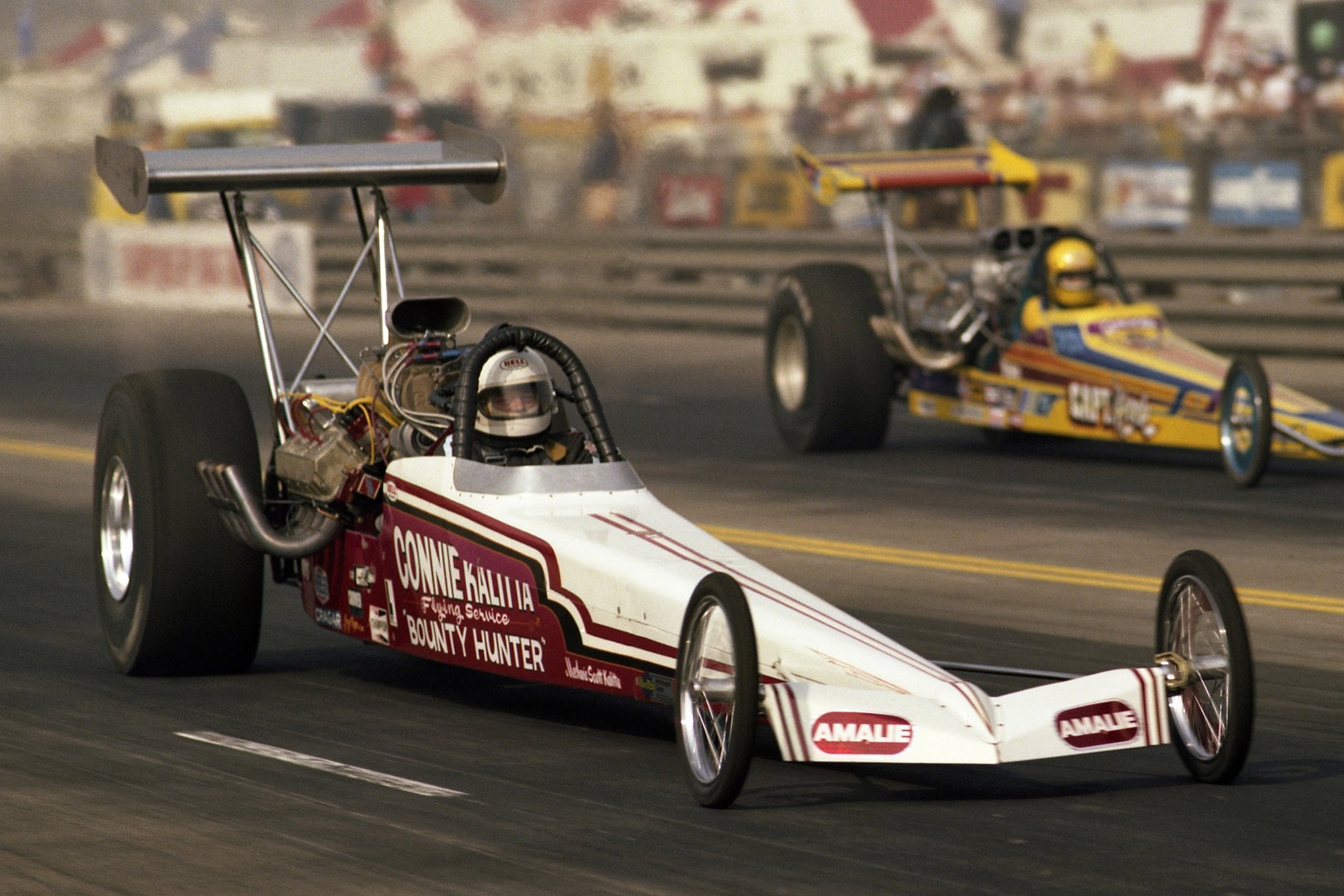The full quote in dirty imperial units:
I live my life a quarter mile at a time. Nothing else matters: not the mortgage, not the store, not my team and all their bullshit. For those ten seconds or less, I’m free.
– The Fast and the Furious
How was this translated to metric?
As a kid, I thought mile, inch, and ton were all fake units of measurement that didn’t have any actual distance attached. Just used metaphorically.
- An inch is a distance you can measure using your thumb and index finger (from the same hand)
- A mile is a distance you could walk, but would probably rather use a vehicle
- A ton is too much weight to even fathom lifting.
Then there’s cup, ounce, and pint, which I thought were just words for containers that have an approximate size. Yard and foot to a lesser extent. Acre must’ve been a plot of land of indeterminate size.
Getting into cooking, I’m hating that teaspoon and tablespoon are a thing (along with a pinch and a dash). They don’t even seem to line up at all with my tablespoons or teaspoons…I need to own special spoons that are labeled “tablespoon” and “teaspoon”, otherwise the measurements will be wrong!
And given the unit conversions of all this junk, I’m not convinced my former understanding is much worse than reality.
fathom
Also a unit of measurement.
LOL! I rest my case
Once upon a time we weren’t as concerned about accuracy as we are now. Woodworkers used to use surprisingly few graduated measuring tools; you’d make a thing called a storey stick which is a small board with notches in it. That notch is the overall height of the cabinet, that one is the overall width…who cares exactly what the number is, as long as it’s always the same distance? I don’t need a desk that’s 43 7/8" wide, I need a desk that fits between those two windows.
Same happens in the kitchen; until the 1950’s the average American housewife didn’t have much in the way of measuring tools, but you could rely on her to have some teacups and some spoons, so that’s what recipes were written for. A given woman would learn from experience that her spoons were a little small so use a slightly heaping spoonful when the recipe calls for 1 teaspoon.
In the modern day a set of measuring cups and spoons are such common kitchen equipment that finding yourself without them is either one of those sweet coming of age stories filed alongside calling mom to ask how you tell when canned soup is done.
Then the Europeans show up, smug in their complete inability to handle it.
Wait till you learn that when cooking ‘pinch’ is measured in how many fingers you use, ie: two-finger pinch, three-finger pinch, etc.
That actually makes more sense. But I still hate it.
There is a modern-style (awful-UX) site that gathers phrase translations, via opensubtitles.org and other sources. Examples for German:
Ich lebe sowieso immer nur für die nächste Kurve.
“I always only live for the next curve anyway”ich lebe meinen Leben in Viertelmeilenschritten.
“I live my life in quarter-mile steps.”Ich lebe mein Leben in Halb-Kilometer-Abschnitten
“I live my life in half-kilometer sections.”Żyję szybko i nigdy nie patrzę dalej, niż na pół mili.
“I live fast and never look farther than half a mile.”Przeżywam moje życie w niesamowitym tempie.
“I live my life at an incredible pace.”Moje życie to te krótkie chwile na trasie.
“My life is those short moments on the road.”żyję od wyścigu do wyścigu.
“I live from race to race.”Which ones are official? Dunno, it doesn’t say. The more literal ones are probably subs as opposed to dub CCs.
15 more languages are available but I don’t understand them enough to check an automatic translation. It’s not needed now but you need desktop mode to see the “view in context” button and instead of an account, I use a custom CSS file to unblur the bottom examples.
A lot of those miss the original point though. Drag racing strips are traditionally a quarter mile long. Converting it to kilometers (or changing it to a half mile instead) destroys the drag racing reference.
As a European: What’s a drag race?
Imagine the 100m dash at the Olympics. But for cars.
Just a short straight line. Head to head race, first one to the end wins.it’s tractor pulling without a counterweight and with dinky little cars
Drag racing is a form of race where competitors line up at a starting line and compete to be the first across the finish line. It’s unique in that most races begin with the cars already moving, and typically involve longer races, multiple laps, cornering, etc… In contrast, drag racing is on a straight quarter mile track, which means it is a competition focused almost entirely on acceleration and top speed.
To make a track and field comparison, drag racing is like the 100 meter sprint of car races. No measure of endurance, just get from A to B as fast as possible.
Even if you don’t recognize the name for drag racing, you almost certainly recognize the distinctive car design with the large rear tires, long pointed nose, and giant aerofoils to keep the car on the track:

Virtually every professional drag race is over in just a few seconds.
Literally never seen one before. I thought the Atari 2600 game featured a charriot of sorts, not a motor vehicle.
Offtopic: The expression “Give someone an inch, and they’ll take it a mile” is 得寸进尺 in Chinese. 寸 is Inch, 尺 is Ruler. So I guess its “Give someone an inch, and they go the distance of a ruler”? Its either 12 inch / 30 cm? Or is it 1 meter / 1 yard (ya know, those big rulers)?
Or maybe we should just say “Give someone an inch, and they’ll steal your ruler?” 😆
But anyways: I think most movies just literally translate the words so they don’t have to do conversions.
Give someone an inch, they’ll take a foot. Pretty soon you don’t have a leg to stand on.
In French it’s “On lui donne un doigt et il nous prend le bras” “We give a finger* and he** takes an arm”
* literally “finger”, I suspect it might come from a translation from “inch” which is translated as “pouce” in french, meaning “thumb”
**French has no non-gendered pronoun apart from first person
You have “bras” twice in the proverb, it should be “On lui donne le doigt et il nous prend le bras”.
Guess I was tired haha, fixed, thanks :)
It alternatively:
“Give someone an inch and they’ll take over your kingdom”
(I know I’m misrepresenting but at least in my experience… it has happened quite a few times)
Well, in Swedish, we have “mil”, which is 10km, so mr. Toretto would be living his life 2.5km at a time. However, I can only assume he’s a pilot in his alternate Swedish incarnation, since covering that distance in “ten seconds or less” would mean travelling at >900kmph.
It’s a drag racing reference. Drag strips are traditionally a quarter mile long, and there are over 50 supercars that have made it in less than 10 seconds. Considering the fact that the Fast and the Furious series is all about racing and cars, it’s clearly a drag racing reference.
One of the big issues with localization is that it tends to destroy references like this. If you change the distance into another unit (like kilometers) you also destroy the drag racing reference.
I live my life two fifths of a kilometer at a time.
I live my life two fifths of vodka at a time.
I live my life two fifths of a rock of crack at a time.
I think since it was a reference to a drag strip it was translated as a quarter of a mile everywhere else. At least where I live we use metric and we still call it eight mile, quarter mile and half mile when it comes to drag events
Serious answer, in italian it still uses miles
The movie I saw in Australia had the quote exactly as is. I’d like to think most of us recognize that a mile is a bit longer than a kilometer and that those distances are common in drag racing, so they’re referred to as is. If we were measuring distance from driving to another city it’s in kilometers and miles aren’t used.
Tape measures have centimeters and inches on them. If I’m using approximations I might use inches and Subway has probably been the main reason Aussies know of inches and a foot.
If I’m doing any scientific measurement like building a cabinet etc, it’s mm and cm.
Subway got in trouble for their subs not being a full twelve inches. They tried to claim that ‘footlong’ was just a trademark and didn’t mean they’d be an actual foot long.
In Malaysia we use both metric and imperial even though we only learn metric in school, so ehh it’s still quarter mile
402.335 meters. Just round it down. 400 meters at a time.
Most US tracks are 4 laps to a mile, or about 400 meters.
Nah most US tracks are 400 meters, but everyone says quarter mile due to rounding
1319 doesn’t quite roll off the tongue the same.
The 400 sounds sweet.
The metric system is the tool of the devil! My car gets forty rods to the hogshead and that’s the way I likes it.
.402336km at a time.
I live my life 400m at a time
So you stop just before you win? That doesn’t make sense 😅
He starts worrying again a couple meters from the finish line
It wasn’t, not really important to the plot? If it was half a mile or mile nothing would have changed. I have no idea how many bananas is it.
I guess it being a 1/4 mile isn’t directly relevant to the plot but the 1/4 mile is a standard measurement for a drag race.
It does have meaning.It does have a meaning, but not knowing how long is the race track changes very little.
72 gum-gums.
I wonder if gas efficiency is still called mileage
Can’t say about other countries, but here in general you just say “n liters” dropping “per 100 kilometers”. Another metric that conveys the same thing.
Interesting-- does the word exist at all? Can you talk about a reliable appliance as something you can “get a lot of mileage” from?
We’d say: ‘What is the usage (of fuel) of your car’ it’s usually expressed in his expressed in kilometers per liter.
Right, but beyond that we’ve got further definitions of the word meaning “usefulness” or “getting benefit from”. So like a clip that had lasting support throughout a political campaign that can be used over and over could be described as something you “get a lot of mileage out of”. Does that exist in metric countries?
I think this idiom is specific to english-speaking north america, due to it being vast and car-centric, we have a similar idiom that means hardy, reliable and getting things done - workhorse, this one is used in multiple slavic languages and in english (I think).
We also use workhorse for sure
I’m not aware of a specific idiom that conveys that meaning in my language. We’d say ‘it’s economical/thrifty’ but there’s no car related idiom. A combined word like ‘kilometerrendement’ might be conjured up, but isn’t in common use.
As sayings go, they predate the petrol engine like : ‘that’ll keep the stove burning for a while’ or ‘sailing with the wind’
Yes.
Dang, I was hoping you had another word like kilometrage
There is “metráž” (“metrage” with French pronounciation) and “kilometráž” in my language. The former is used for items sold by the meter (carpets, film stock) while the latter is very rare and refers to the little numbers between pin-marked intersections in road atlases. Both are falling out of fashion and so is the literal translation of “footage” (stopáž), now replaced with délka (“length”) and meaning duration, never the footage (recording) itself.
All our colloquialisms and such like are still rooted in the old units.
I suppose we might say “fuel economy” but only if we’re trying to sound fancy.
Haven’t seen the movies in German so I can’t tell you what exactly he says. But distances in miles are generally kept in miles for German localisation (except for VERY rare cases), using the German word “Meile”. Especially when it’s not actually about a physical distance but vibes. We may not use miles to measure anything but we still have expressions like “meilenweit gehen” (to walk for miles, i.e. a very long distance) so it’s not like we don’t know what a mile is.












